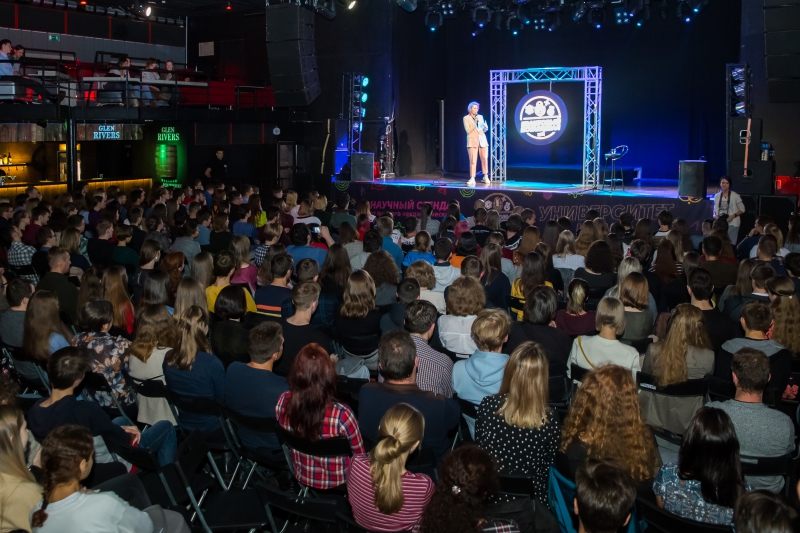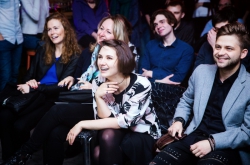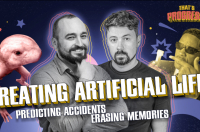“Quantum Potential” is open for those who have mastered Big Data, photonics or IT and can talk about science in simple terms while also charming the audience with their sense of humor. Scientists are usually asked to just give a lecture, to stay within the lines, and by all means to avoid bursting into dance onstage. Here, however, they can show their other side and demonstrate this very quantum potential that’s burning inside.
It is only logical that the first three shows were held at “Tantsploshchadka” (Russian, “dance floor”) club. This time, the organizers amped up the scales with Kosmonavt Club hosting the show not only for ITMO University’s students and professors but also for everyone interested in scientific stand-up. The concept remains unchanged: the stage is shared by scientists and a real-life stand-up comedian and the topics include science, technologies and the life of young researchers. Topics are suggested by scientists and the stand-up itself is created later together with the organizing team.
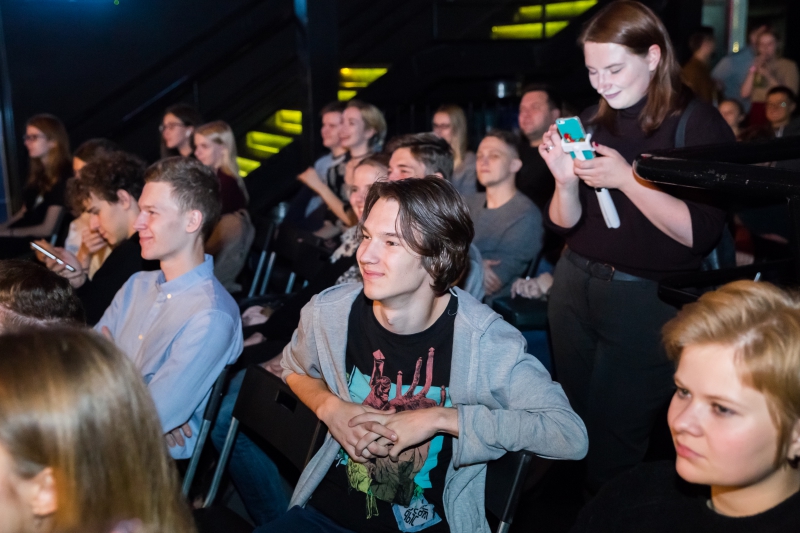
“In the very beginning, we thought it would be cool if on one end of the stage there were three scientists who are not used to doing stand-up and on the other, there was a professional stand-up comedian. It was an immediate success, so we kept the format. Now, however, we invite not only ITMO University’s speakers as we don’t want this to be a private club. That’s why we always welcome professors and PhD students from other universities as well as business representatives. We hope to make this an ITMO-based science club for IT specialists who also happen to have an interest in stand-up,” shares Aleksandr Gostev, the founder of the show, Public Relations Specialist at ITMO University.
This show’s guest star was “a real stand-up comedian,” Nidal Abu-Gazale, the TNT Comedy Battle participant, founder and host of ABU SHOW, and one of the organizers of stand-up movement in St. Petersburg. The science part was represented by three researchers from St. Petersburg and Moscow.
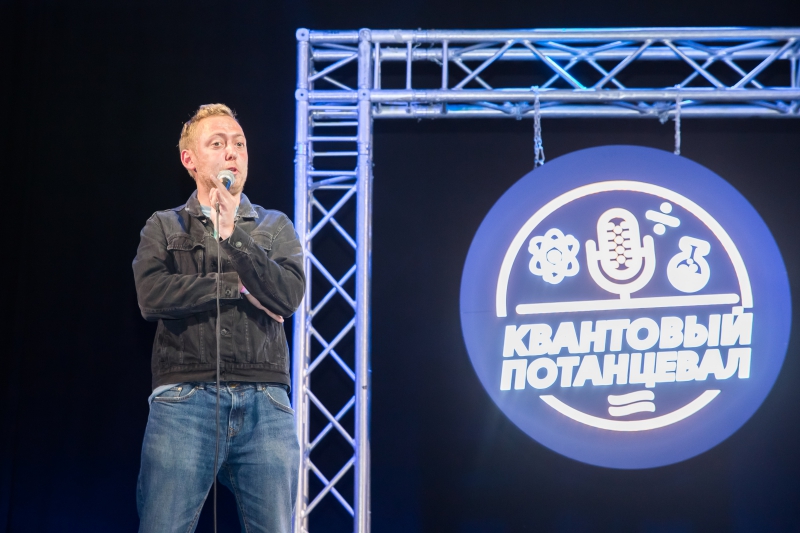
Andrey Afanasyev, a bioinformatician from the Department of Nuclear Physics of Lomonosov Moscow State University, uncovered the truth of what stands behind DNA testing, the possibility of them finding your sister in California and what can happen after you spit into a test-tube.
Ksenia Buraya, an ITMO University’s PhD student, an employee of International Laboratory “Computer Technologies” and a programmer at VKontakte, discussed the reasons for a programmer to level up in the age of smart devices and algorithms, tried to identify the benefits of constant self-improvement, and explained why the best way to ace the mathematical analysis test is by actually understanding everything you have to learn.
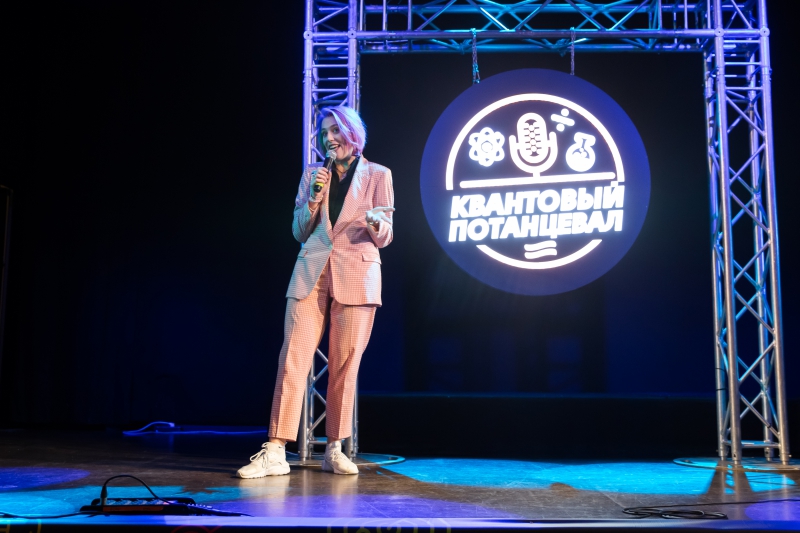
“I touched upon the intelligence debate: do we need to keep learning or should we just go with the flow without thinking. This topic emerged after I got asked once about the problem that bothered me. My answer was, “It seems that everyone is stupid”. Here, we looked deeper at this question and tried to show it from different angles,” says Ksenia. “I was actually taken aback by the invitation to “Quantum Potential” even though I have participated in other events. Then I thought that one ought to take all from life. I like this format. It’s great that people here can talk about something new, something personal, not just the usual textbook lines.”
Valery Chernov, a third-year student at ITMO University’s Faculty of Control Systems and Robotics, gave his take on the ethical issues holding robotics back, the reasons why we don’t live in smart-homes and have not yet created Skynet, even though we have so many IT specialists.
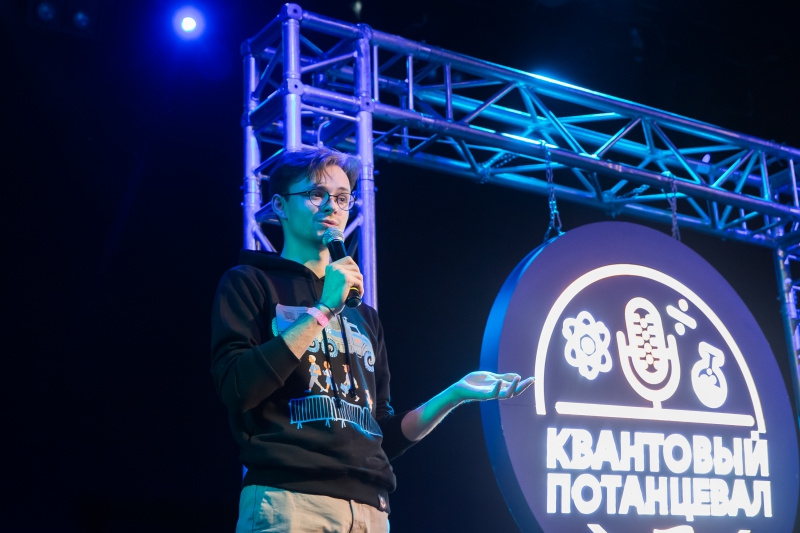
“When I was invited to participate, I thought, “Well, we all turn to stand-up sooner or later, my time has come”. Every time you open Instagram, you see people telling stories. Everyone used to be a blogger and now we are all stand-up comedians,” says Valery jokingly. “My topic has united everything that I think about in terms of robotics. We are used to hearing things like “Robots will kill us, they will take our jobs.” This has been going on for decades, but nothing happens. Although at times we hear something actually interesting. In Japan, for example, people are already burying dog-robots. But how is it possible, these are robots we are talking about! On the other hand, The Verge writes that many children these days consider Alexa a family member. That is exactly why I thought it would be great to talk about all the ethical issues raised by robotics.”
The fourth “Quantum Potential” has gathered over 400 people. Among them were students of many St. Petersburg universities, ITMO’s own employees and students as well as everyone interested in science. We talked to the audience to learn about their impressions of the show.
Natalya Urazayeva, artist
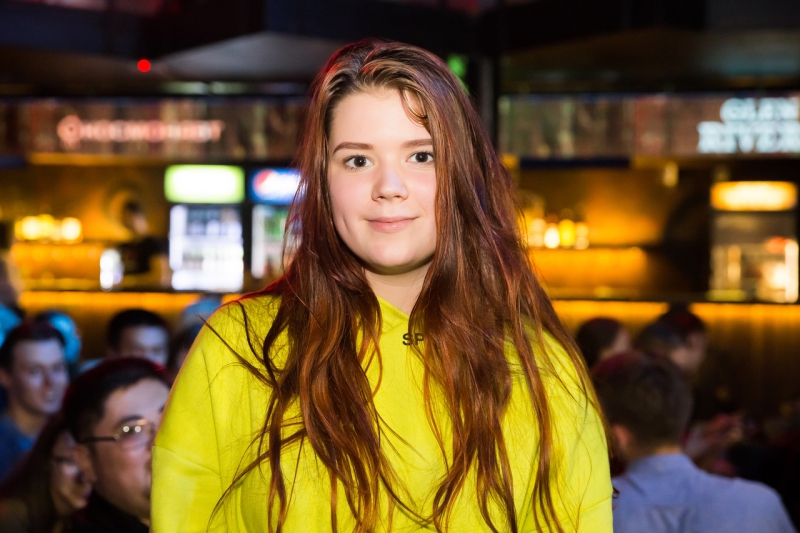
I am interested in popular science generally and it’s even better when such information is presented in this funny format. I usually attend lectures, but it’s my first time on a scientific stand-up. There are many different shows nowadays and this is just one of them. In my opinion, first of all, it is easier to remember the facts when they are presented this way. Moreover, you are getting useful information anyway, not a usual milk-and-water lecture. Personally, I am interested in neurobiology, the study of the brain. I don’t believe in the “scientists are boring” stereotype. Take Alexander Panchin or Asya Kazantseva for example, they are great. There are many scientists nowadays who can present a complicated topic in an entertaining way that is easy to understand. I wholeheartedly support them.
Darya Radina, fourth-year student, ITMO University
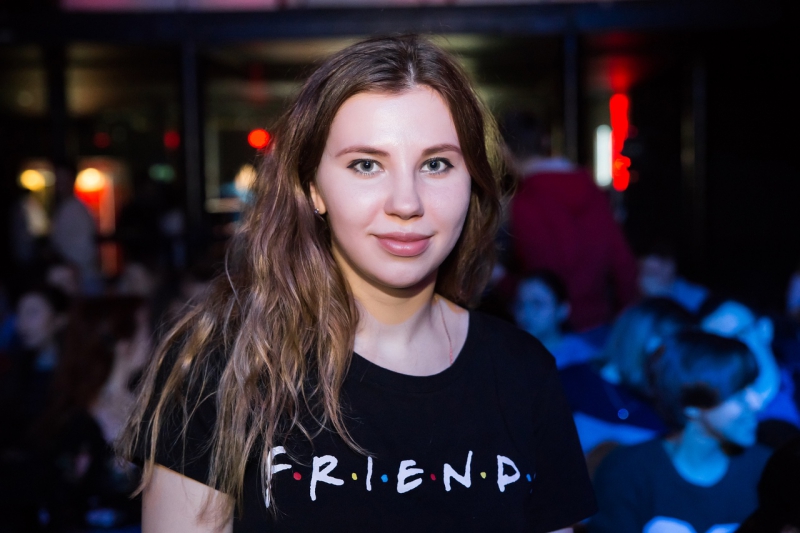
It’s my first time here, I saw the ad and decided to see for myself how one can integrate science into a stand-up show. I think it is possible. Personally, I would prefer a lecture by a professor with a sense of humor. It’s fantastic when he or she can talk about the subject in an interesting way. I watch classic stand-up, KVN and, of course, funny videos on YouTube. As a scientist, I am interested in environmental studies and information security. Here, at “Quantum Potential” I was fascinated by the DNA-related topic.
Aleksandra Skobeleva, second-year student, ITMO University
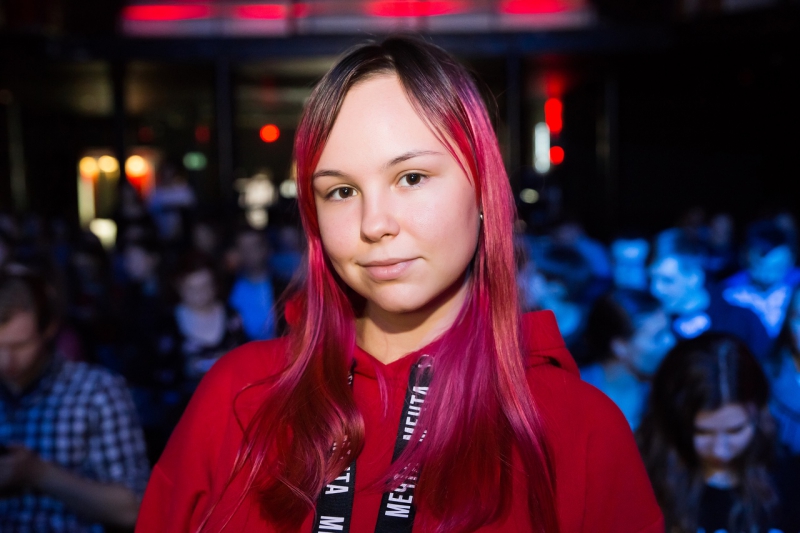
I have never been to a “Quantum Potential” show before, it’s my first show of this kind. But I actually think that most of us have a sense of humor, including scientists. That is why I don’t support the stereotype of them being boring, our professors certainly don’t look it. In my view, the best way to talk about a complicated issue is by illustrating it with a presentation or giving apt examples. I have attended another popular science event, “Kurilka Gutenberga”, which was also held at our university. I enjoyed it. I like the idea of scientists appearing on various platforms because it allows us to learn something new every day.
Translated by Catherine Zavodova
